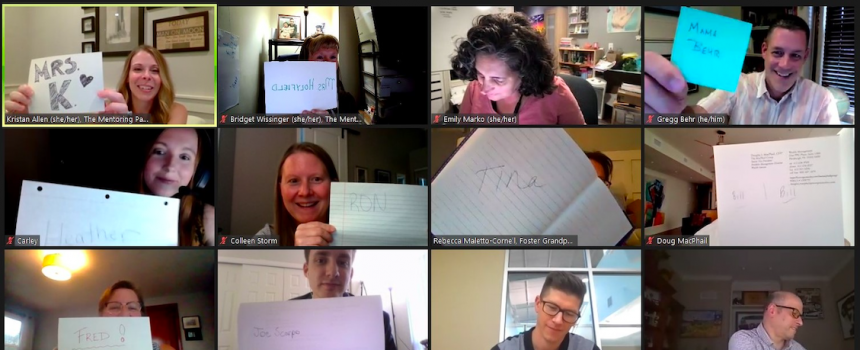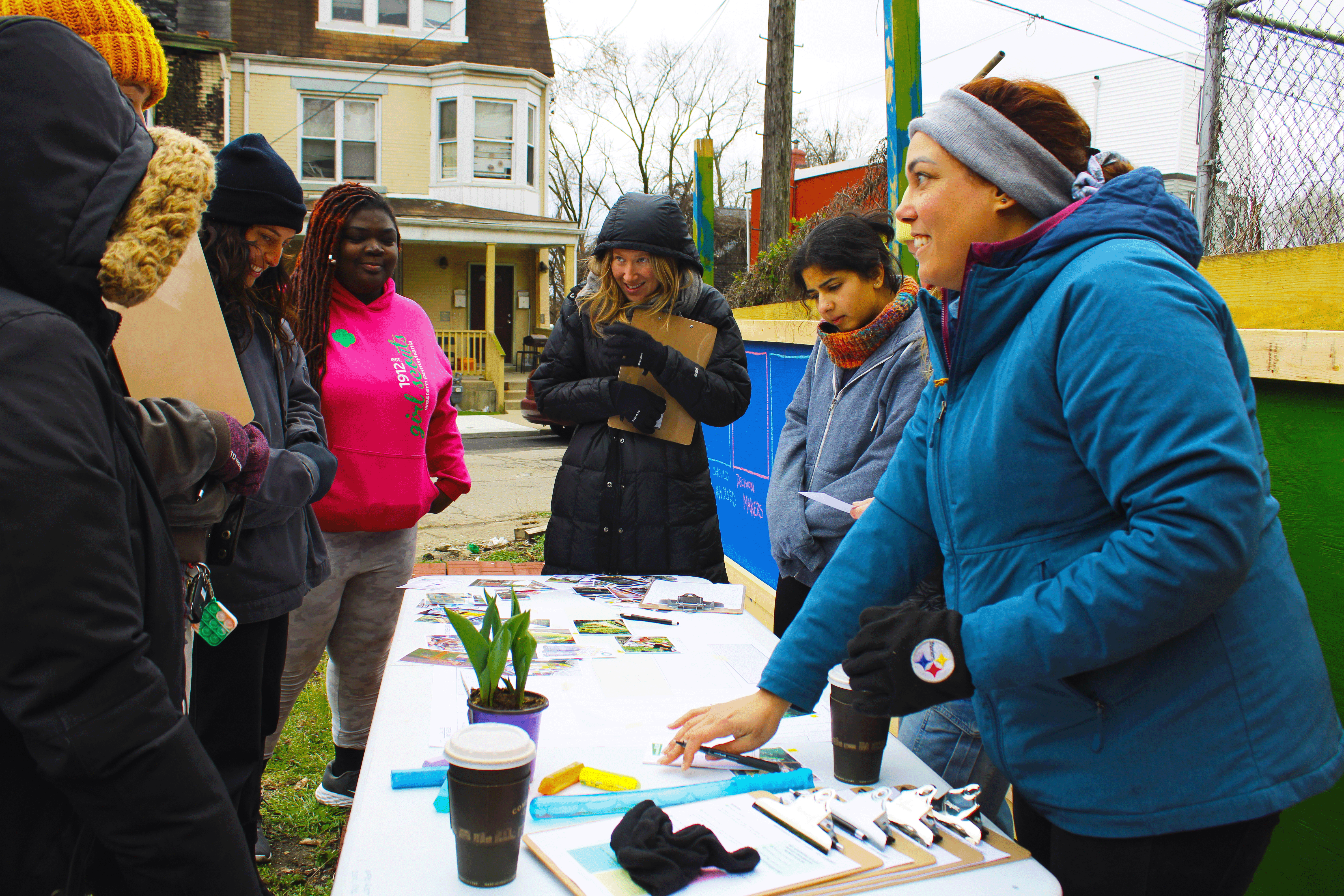Nonprofit leaders are at a high risk of burnout and mental health impacts, a serious concern which was only exacerbated by the COVID-19 crisis.

Above: A Mentor Partnership of SWPA webinar with young professionals sharing the name of someone who they have felt mentored by. The partnership provided mentors to Nonprofit Resilience Program participants.
Even before the pandemic began, the need to create a program that helped community development organizations strengthen the wellbeing of their leaders was imminent, said Jamie Johnson, Director of Programs at New Sun Rising.

Photo courtesy of Assemble, who participated in NRP and agreed to be mentioned in this blog.
Through conversations between New Sun Rising, Neighborhood Allies, The Forbes Funds, and other members of The Partnership Network (TPN), the Nonprofit Resilience Program (NRP) was established to support the leaders of community development organizations across the region. The program was made possible by the generous support of the Staunton Farm Foundation and the Jack Buncher Foundation.
“Exhaustion, lack of access to growth and learning opportunities, and little to no support for mental health needs was not uncommon,” said Stephanie Chernay, Chief Operating Officer at Neighborhood Allies. “This trend is especially apparent among women and minority leaders of nonprofits.”
Now with its third cohort completed, the Nonprofit Resilience Program has four goals: develop healthy leaders, create trust and connectivity, build organizational capacity, and strengthen the talent pipeline.
Jamie Johnson, Director of Programs at New Sun Rising, said each cohort has built upon the one that came before it, but the second cohort (which took place in January 2021) tackled the particular challenge of navigating the impacts from the previous year, or the new normal.
“This cohort, just like the others, proves how important and valuable it is to support our nonprofit leaders,” Johnson said. “The development of a space where they can place their hearts and issues on the table to be accepted and not judged is at the core of this program. We hope the nonprofit community finds opportunities such as this worthy of investment.”

Christine Kroger of Neighborhood North Museum of Play who participated in NRP and agreed to be mentioned in this blog.
In late 2019, The Partnership Network (TPN), a group of intermediary funders and capacity building organizations mobilizing the community and economic development sectors to solve complex community challenges, met to discuss how they could better support community development organizations across the region. They found that the answer was, in part, by supporting their leaders.
The program contains three three phases that focus on: Healthy Leaders (individual self-care), Stronger Connectivity (relationship building), and Building Capacity (leader + organizational development).
“I felt the Nonprofit Resilience Program was one of the few professional development opportunities that I attended that focused on the individual and made an effort to see everyone as a person and not just a part of an organization,” said a Nonprofit Resilience Program participant.
Johnson said confidentiality of participants’ names and their organizations was intentional in creating the program so leaders would “feel comfortable enough to be transparent about where they are at.”
“It allowed participants to become vulnerable enough to share their concerns and weaknesses, and anything they may be dealing with, professionally or not, with each other,” Johnson said.

Kelly Burgos Harper, Board President of Monaca Community Development Corporation, who participated in NRP and agreed to be mentioned in this blog.
The first cohort in 2020 included 11 nonprofit leaders from both small and large organizations ranging from staff sizes of 1 to 100+. Out of the 11 participants, seven identified as Black and four as white. Seven participants also identified as heterosexual women, two as heterosexual men, one woman as lesbian, gay, bisexual, and one person as lesbian, gay, bisexual.
The second cohort included individuals who all identified as women; out of the eight participants, one identified as Asian, two as Black, four as white, and one as Caucasian and Puerto Rican. Eight participants identified as women in the second cohort, and one woman was pansexual. The third, funded by The Buhl Foundation, were all Black, Indigenous, and people of color.
“Supporting the mental health of our nonprofit leaders is a necessary step to creating a more efficient, impactful community development system,” said Chernay. “The Nonprofit Resilience Program creates a space where leaders can be honest about their challenges, build trust with their peers, and access individual and organizational capacity building assistance.”

